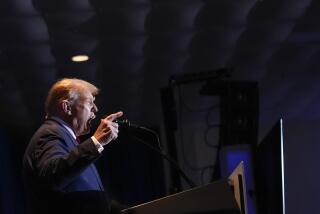‘N-word’ -- however you say it -- is vile, and a N.Y. jury agrees
After George Zimmerman’s acquittal on the charge of murdering Trayvon Martin, CNN’s Piers Morgan asked Rachel Jeantel, Martin’s friend, about something she had said on the witness stand. Jeantel had testified that Martin had told her over the phone that “the nigga is behind me” -- a reference to Zimmerman.
Jeantel told Morgan that there was a difference between “nigga” -- a slang term she said could be applied to a male of any race -- and the “N-word” that ends with an R. Jeantel explained that the distinction dated back to the year 2000, when “they changed it around.”
But here’s the problem. When some people -- not only African Americans but white Southerners, Brooklynites and Brits such as Morgan -- pronounce the bad N-word, the hard R isn’t sounded, making it sound like the “good” N-word.
Pronunciation aside, Jeantel’s comment was a reminder of the familiar argument that the N-word, however the final consonant is pronounced, is always objectionable when it issues from the mouth of a white person but pardonable if it is spoken by a black person.
A federal jury in New York disagrees. This week, it awarded $30,000 in punitive damages to a black employee of an employment agency who was subjected to a tirade from her manager that included eight iterations of the N-word.
The manager, who is also black, argued that he used the word to convey that the female employee was “too emotional, wrapped up in ... the negative aspects of human nature.” The Associated Press reported that he also argued that “the word has ‘multiple contexts’ in the black and Latino communities, sometimes indicating anger, sometimes love.” (The AP story didn’t indicate how the manager pronounced the word.)
The jury obviously took account of the context of the manager’s remarks, which were basically a denunciation of the employee’s workplace attire and supposedly unprofessional behavior. Still, the verdict makes it clear that the N-word can be deployed in a hateful way by one black person speaking to another.
The employee’s attorney said that she hoped the verdict sent a strong message to those who “have tried to take the sting out of the N-word.... It’s the most offensive word in the English language.” That’s true no matter how it’s pronounced.
ALSO:
School dress codes: Miniskirt madness
Don’t use U.S. credibility as a reason to attack Syria
Latest Snowden revelation: NSA sabotaged electronic locks
More to Read
A cure for the common opinion
Get thought-provoking perspectives with our weekly newsletter.
You may occasionally receive promotional content from the Los Angeles Times.







